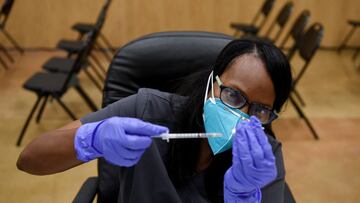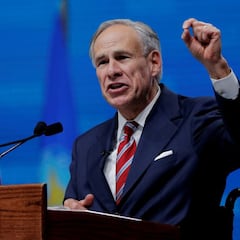Who is exempt from the vaccine mandate?
Vaccine mandates have become an intensely politicized discussion in the US and there are only two ways of avoiding it if your state is imposing one.


As the number of covid-19 vaccine mandates grow around the US, so too does the number of people trying to get out of the requirement. Sports have seen their problems with getting players vaccinated, which has prevented some players from being able to train in their home states. There are only two ways to get out of the mandate, and both must be proved.
Some states have also pushed back against the mandates, declaring that they will not heed the federal call for mandates.
Related news:
- Which NBA players are still not vaccinated?
- Why is Texas Governor Greg Abbott rejecting vaccine mandates?
- Are third vaccine booster shots for covid-19 necessary?
- How many Americans does Biden's vaccine mandate apply to?
What are the exemptions?
The law grants two types of exemption to getting vaccinated either on medical grounds or because of “sincerely held religious beliefs.”
Religious objections are protected under Title VII of the Civil Rights Act of 1964, which says that private companies must make “reasonable accommodations” for workers who have “sincerely held” religious beliefs that may conflict with vaccination or other aspects within the work environment. A religious belief is not limited to “just practices that are mandated or prohibited by a tenet of the individual’s faith,” according to rules laid out by the Equal Employment Opportunity Commission.
The sincerity of the stated religious belief is “largely a matter of individual credibility,” and is not usually in dispute. Simple lack of scrupulous observance doesn’t forfeit one's religious rights. However, if there is evidence that the employee “acted in a manner inconsistent with his professed religious belief,” it may be used to evaluate the sincerity of the claimed belief. Similarly, the timing of the request or the “accommodation sought is a particularly desirable benefit” can render it suspect.
A judge ruled New York must allow religious exemptions to COVID-19 vaccine mandate.
— Kambree (@KamVTV) October 13, 2021
What is the vaccine mandate?
The vaccine mandate covers around 100 million workers, or about two thirds of the nation’s workforce. The hope is through the executive order that a sizeable portion of the nearly 80 million Americans who haven’t been vaccinated yet will be covered. "We've been patient. But our patience is wearing thin, and your refusal has cost all of us," President Biden told those Americans who haven’t gotten vaccinated.
Related stories
To qualify as fully vaccinated, workers need to have had two doses of the Pfizer or Moderna vaccines or just one dose of the Johnson & Johnson vaccine. This needs to be completed by November 8, when the mandate takes effect.
What states dies the mandate not apply?
There are 12 states which have so far refused to enforce the federal vaccine mandate. These are: Arizona, Arkansas, Florida, Georgia, Indiana, Montana, New Hampshire, North Dakota, Oklahoma, Tennessee, Texas, and Utah.

